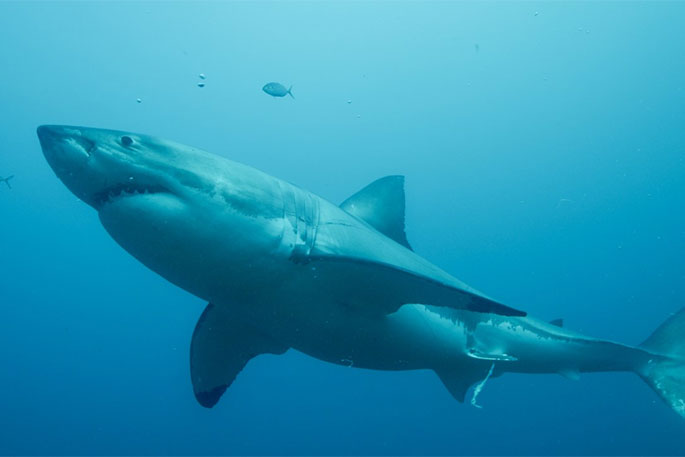A coroner's call for more research into great white sharks is set to be realised but only thanks to the efforts of marine biologist Dr Riley Elliott and more than $30,000 in public donations.
More research into the shark population was one of the key recommendations made by Coroner Michael Robb in his report into the fatal attack of Kaelah Marlow at Waihī Beach on January 7, 2021.
'Research is the key to preventing or at least reducing the risk of a similar death or injury occurring in the future,” he says.
However, the research is only being made possible thanks to public donations totalling, at present, $32,000.
Riley, who provided expert testimony for the inquiry, says he's set to embark on a project from December 1 to attach satellite tracking tags on to the sharks.
Elliott has spoken to Stuff in the past about his battle to secure Department of Conservation permission to commence research.
He had initially requested a DOC permit in December 2020, required as great white sharks are a protected species under the Wildlife Act making it 'illegal to interact with, disturb or harm a great white in any way without a permit”.
He says a permit was finally issued 18 months later in June 2022.
'However, during this processing time a significant increase and persistence of great whites has occurred in the region.”
He says being asked to provide information for the Marlow inquiry brought back earlier frustrations.
”I saw the writing was on the wall.
'Research knowledge and communicating that to people is the answer.”
Riley says it has become something of a personal mission too, as he lives close to where Marlow was killed.
”I feel a real responsibility to do this.”
He says the project will see him sail out to known shark locations and, with the help of burley bags, he will try to draw the sharks in before using what he describes as a broomstick-like device to 'dart” the satellite tag into the shark fin.
'The real beauty is I am creating an app and website so the public can see where the sharks are.
'You can then make your own decisions.”
He says the aim is to tag 20 sharks, so he still needs to raise an additional $48,000 for 12 more of the $4000 satellite tags.
He says the project aims to both help protect the endangered shark species and help prevent public risk.
'Shark attacks can install fear and trauma, that is why [research] is so important.”
He says he's disappointed 'it has taken three summers for this” and contrasted his efforts to secure funding against other wildlife funding drives, such as kiwi conservation efforts.
'If these were kiwis in danger ... that is a frustration.”
He believes there may be a growing population of juvenile great whites in the region's waters, citing three factors: decades of conservation work for sharks, climate change and La Nina weather patterns creating warmer waters, and changes to fishing methods.
More information about the research project, and how to help fund the tagging work, can be found online at Sustainable Oceans Society.
In a written statement to Stuff, DOC acting aquatic director Kirstie Knowles says DOC has not received a funding application from Riley and that its limited resources are mostly used for 'research initiated by the department”.
'We prioritise funding based on the conservation status of a species and the threats to that species, with the overall aim of funding research projects that will deliver the most for conservation.”



1 comment
Give him the money...
Posted on 18-11-2022 12:56 | By morepork
... and support his work. $50K is chump change in the scheme of TCC expenditure. And while you're at it, get drones on the major tourist beaches. It is a lot less difficult (and infinitely cheaper) than expanding Cameron Road...
Leave a Comment
You must be logged in to make a comment.